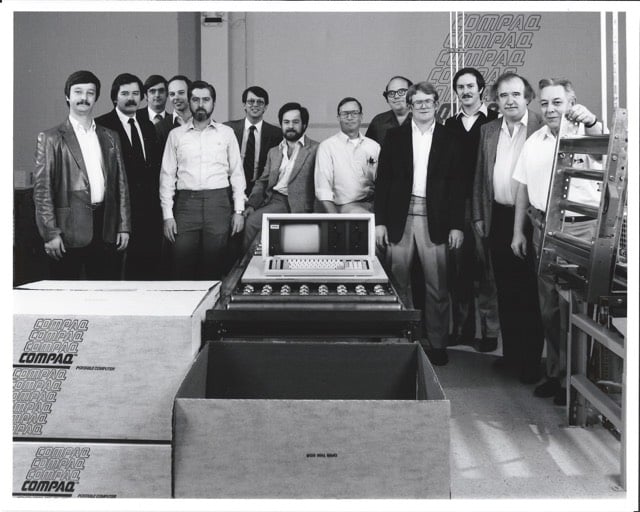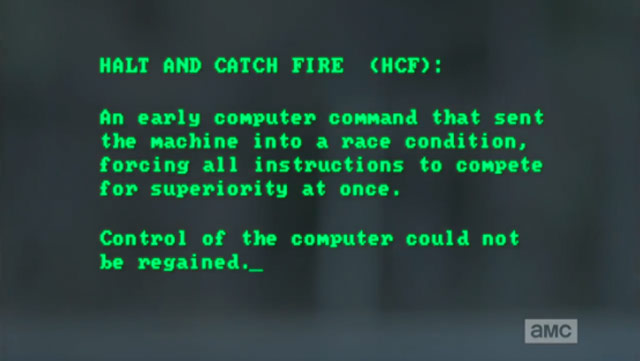
Silicon Cowboys is an upcoming documentary about Compaq Computer, one of the first companies to challenge IBM with a compatible computer.
Launched in 1982 by three friends in a Houston diner, Compaq Computer set out to build a portable PC to take on IBM, the world’s most powerful tech company. Many had tried cloning the industry leader’s code, only to be trounced by IBM and its high-priced lawyers. SILICON COWBOYS explores the remarkable David vs. Goliath story, and eventual demise, of Compaq, an unlikely upstart who altered the future of computing and helped shape the world as we know it today. Directed by Oscar(R)-nominated director Jason Cohen, the film offers a fresh look at the explosive rise of the 1980’s PC industry and is a refreshing alternative to the familiar narratives of Jobs, Gates, and Zuckerberg.
There’s no trailer yet, but the film is set to debut at SXSW in March. The first season of Halt and Catch Fire had a lot of influences, but the bare-bones story was that of Compaq.
Many reviews mention the similarity of the characters to Apple founders Steve Jobs and Steve Wozniak, but the trio of managers from Texas Instruments who left to form Compaq in the early 80s are a much closer fit. The Compaq Portable was the first 100% IBM compatible computer produced.

I’ve been hearing some good things about Halt and Catch Fire, which is three episodes into its first season on AMC. The show follows a group of 80s computer folk as they attempt to reverse engineer the IBM PC. The first episode is available online in its entirety.
Many reviews mention the similarity of the characters to Apple founders Steve Jobs and Steve Wozniak, but the trio of managers from Texas Instruments who left to form Compaq in the early 80s are a much closer fit. The Compaq Portable was the first 100% IBM compatible computer produced. Brian McCullough recently did a piece on Compaq’s cloning of the IBM PC for the Internet History Podcast.
The idea was to create a computer that was mostly like IBM-PC and mostly ran all the same software, but sold at a cheaper price point. The first company to pursue this strategy was Columbia Data Products, followed by Eagle Computer. But soon, most of the big names in the young computer industry (Xerox, Hewlett-Packard, Digital Equipment Corporation, Texas Instruments, and Wang) were all producing PC clones.
But all of these machines were only mostly PC-compatible. So, at best, they were DOS compatible. But there was no guarantee that each and every program or peripheral that ran on the IBM-PC could run on a clone. The key innovation that Canion, Harris and Murto planned to bring to market under the name Compaq Computer Corporation would be a no-compromises, 100% IBM-PC compatibility. This way, their portable computer would be able to run every single piece of software developed for the IBM-PC. They would be able to launch their machine into the largest and most vibrant software ecosystem of the time, and users would be able to use all their favorite programs on the road.
My dad bought a machine from Columbia Data Products; I had no idea it was the first compatible to the market. My uncle had a Compaq Portable that he could take with him on business trips. I played so much Lode Runner on both of those machines. I wonder if that disk of levels I created is still around anywhere… (via @cabel)
Update: I’m all caught up, five episodes into the season, and I’m loving it.
![]()






Stay Connected